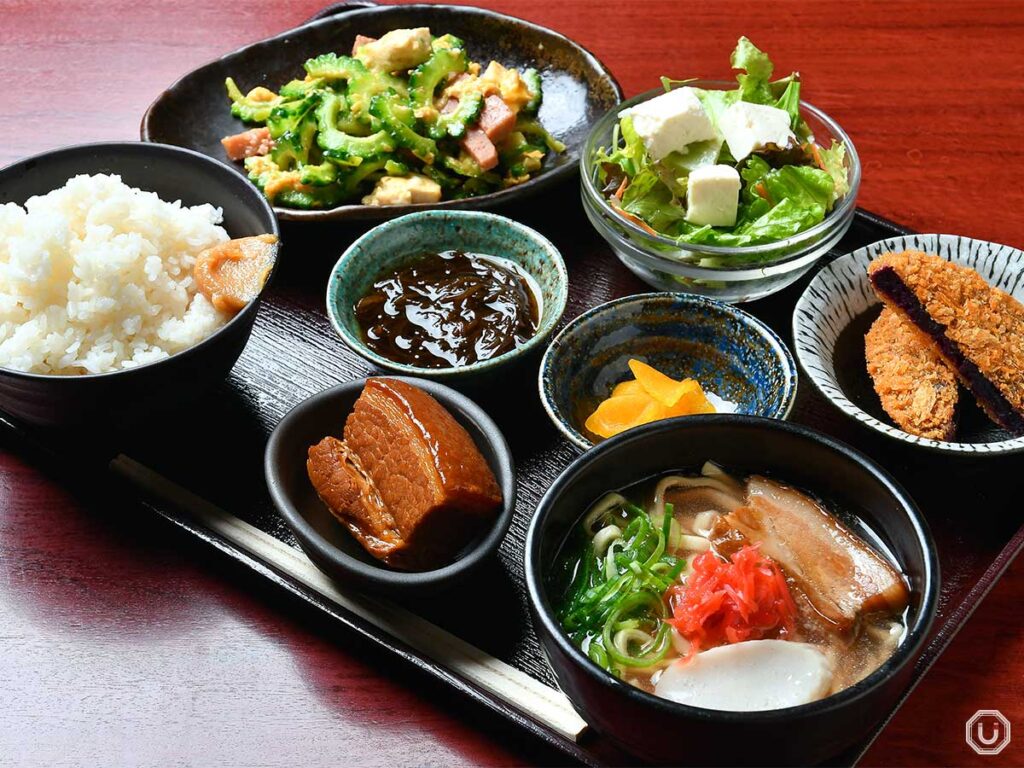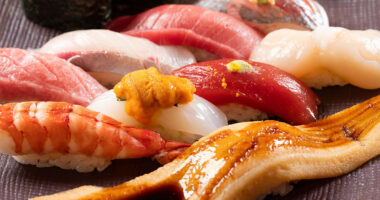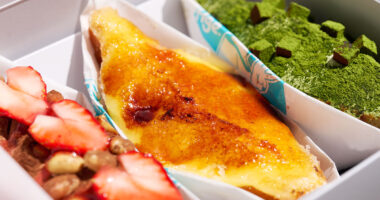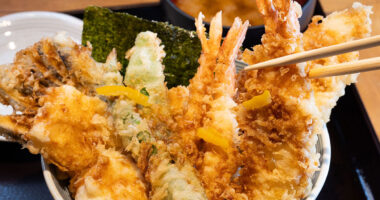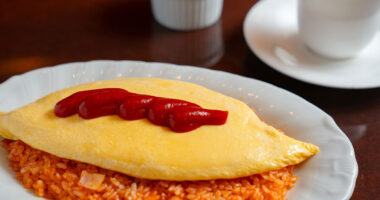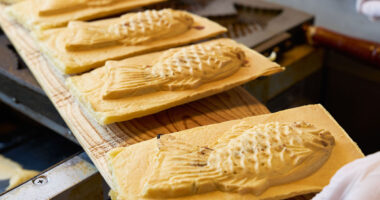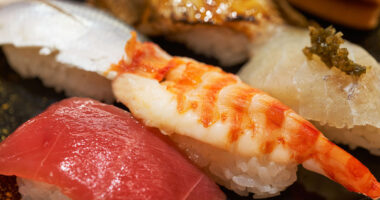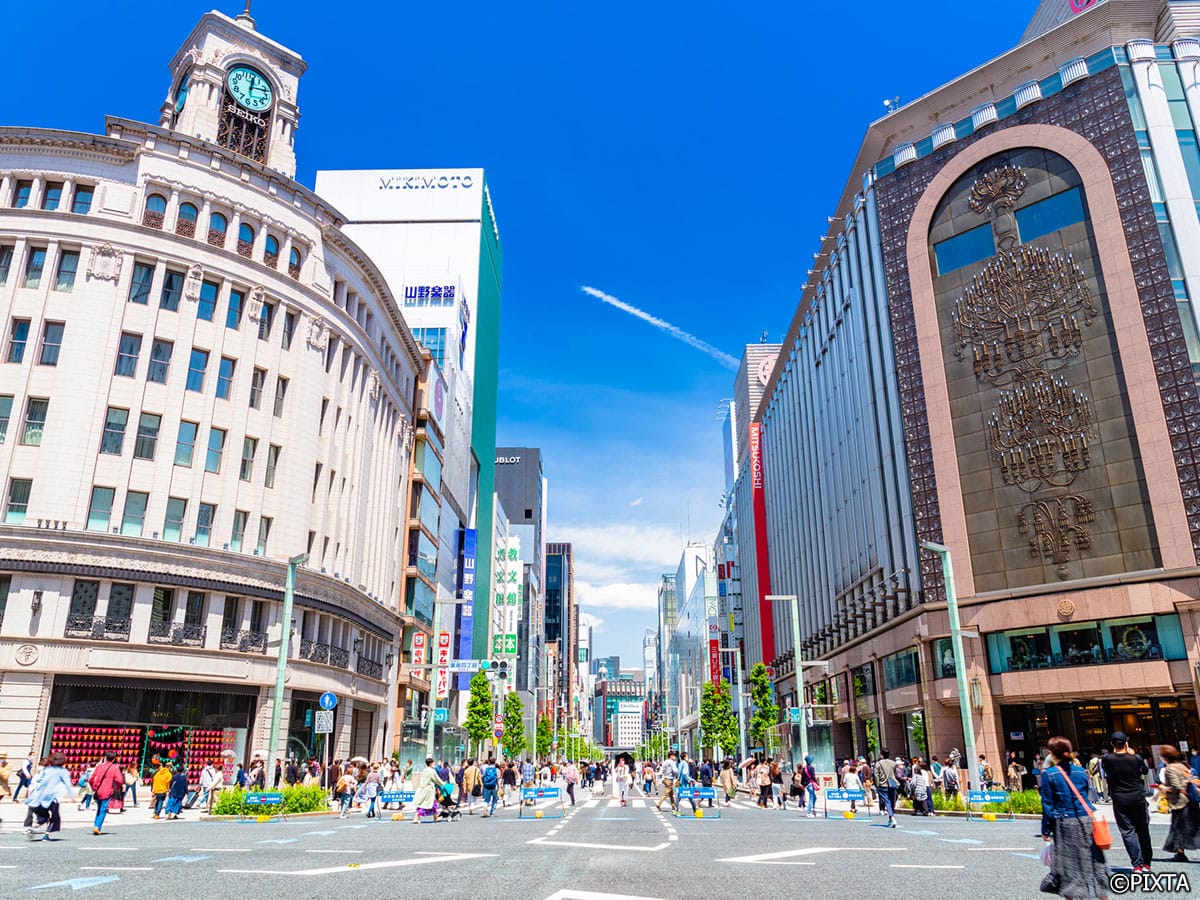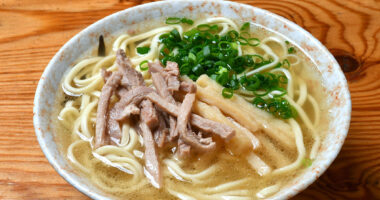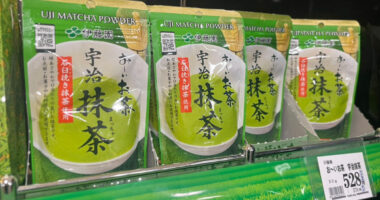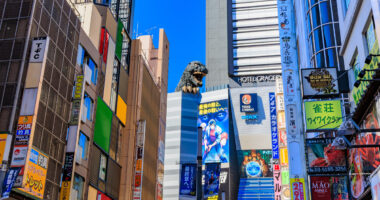Japan is a country of diverse cultures and culinary styles that vary by region.
Among them, Okinawa Prefecture—the country’s southernmost region—boasts a unique culture that sets it apart from mainland Japan. This is especially evident in its rich and distinct food culture, with an impressive variety of local dishes.
While Okinawan specialty restaurants have become more common in Tokyo in recent years, visiting alone or in small groups often means you can’t order many dishes, which can leave you a bit unsatisfied.
That’s where “Taketomijima,” a popular Okinawan restaurant in Ginza, comes in. With a menu designed for sampling a variety of Okinawan dishes in small portions, even solo diners can enjoy the full experience.
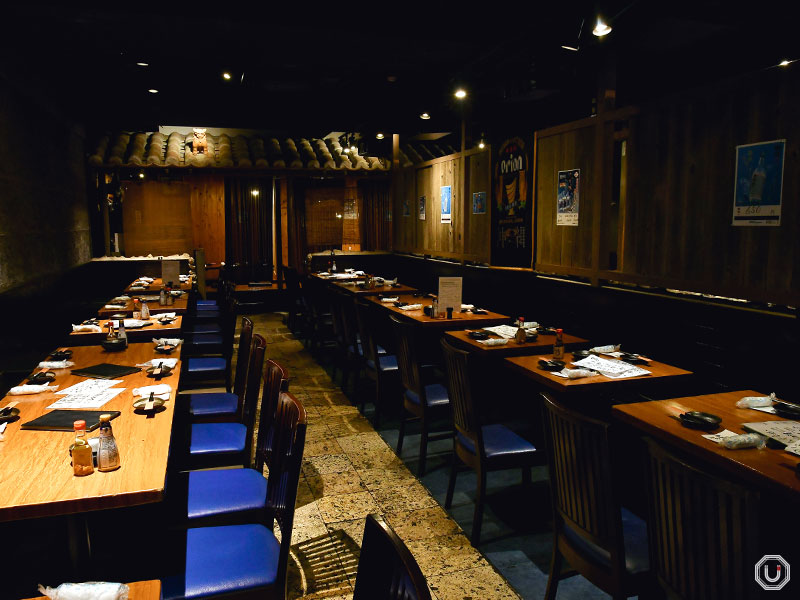
Taketomijima is located right near the commercial complex GINZA SIX. Head downstairs to discover a distinctive space that evokes the spirit of Okinawa.
The walls are decorated with sanshin (three-stringed instruments used in Okinawan folk music), creating a unique atmosphere that blends Ginza’s sleekness with the natural charm of Okinawa.
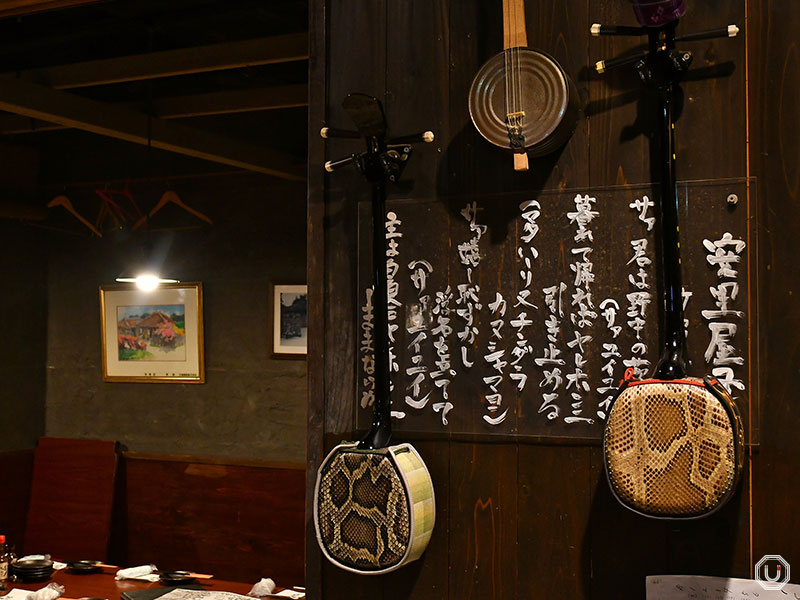
Many of the staff, including the manager, are from Okinawa, and you’ll hear local dialects and accents echoing around the restaurant—making it feel as though you’ve stepped into Okinawa itself.
Sample signature Okinawan dishes in a delicious lunch set
At Taketomijima, you can enjoy various Okinawan dishes as a lunch set. Among the hearty lunch dishes, the most popular is the “Little Okinawa Set Meal.”
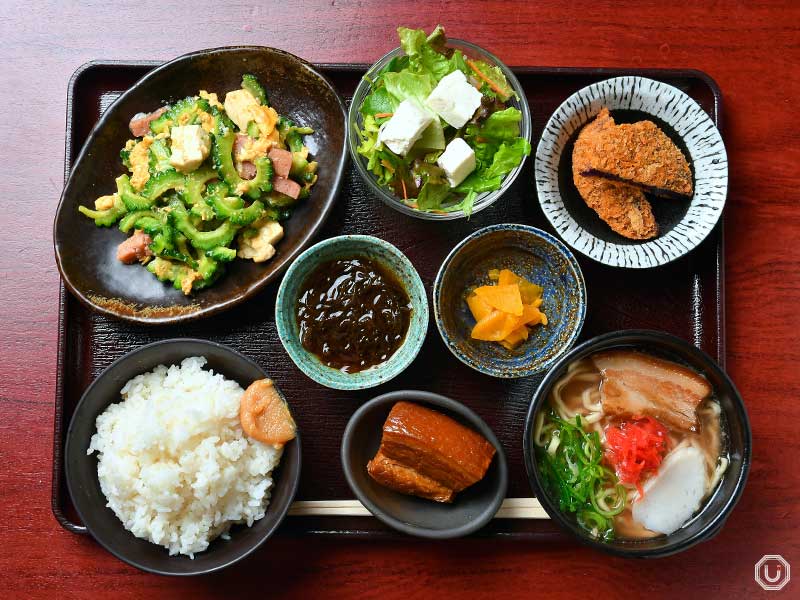
“リトル沖縄定食,” Little Okinawa Lunch Set 1,800 JPY (tax included)
This highly satisfying set includes many of the region’s iconic dishes in one tray. Let’s take a closer look at its highlights!
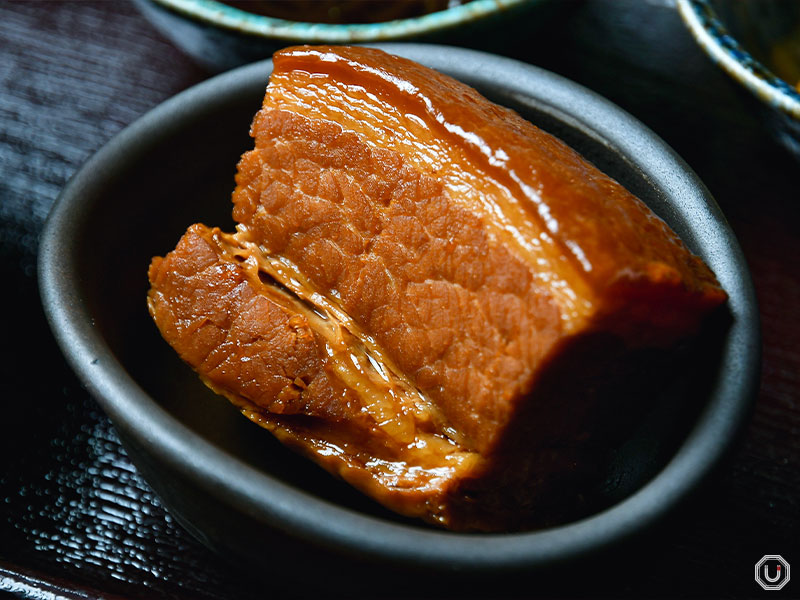
“ラフテー,” Okinawan Braised Pork Belly
Okinawans have a culture of eating pork. Rafutē is Okinawa’s take on braised pork belly, with the key characteristic being the use of pork with skin attached.
The sweet and savory flavor, combined with the pleasantly chewy texture of the skin and the juiciness of the meat, makes it irresistible.
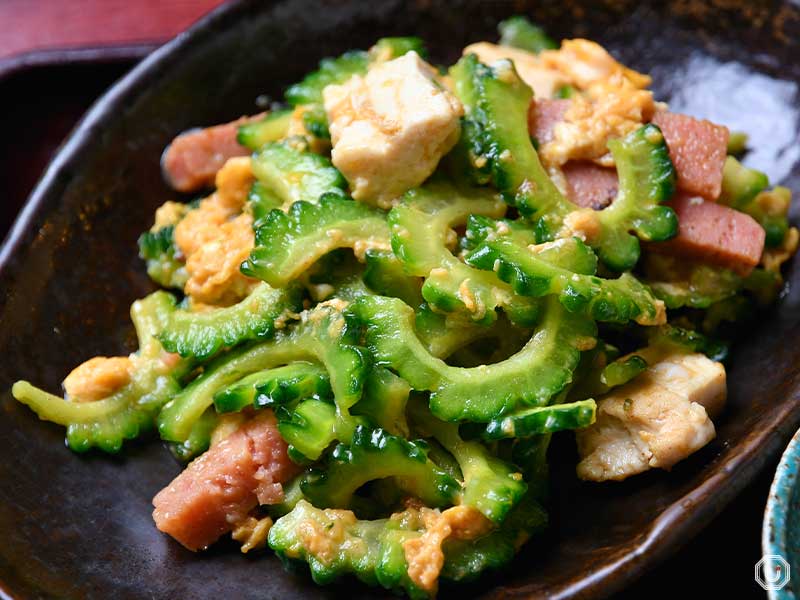
“ごーやーちゃんぷる〜,” Bitter melon stir-fry
The main dish of the set is gōyā champurū (Bitter melon stir-fry), one of Okinawa’s most iconic foods.
Champuru means “mixed together” in the Okinawan dialect and generally refers to stir-fried dishes.
Goya champuru is a stir-fry of gōyā (bitter melon), luncheon meat, shima-dōfu (Okinawa’s traditional firm tofu), and egg, all cooked with bonito-based seasoning.
The bitterness of the goya is balanced by the saltiness of the meat and the mildness of the tofu and egg, making it a perfect match for rice.
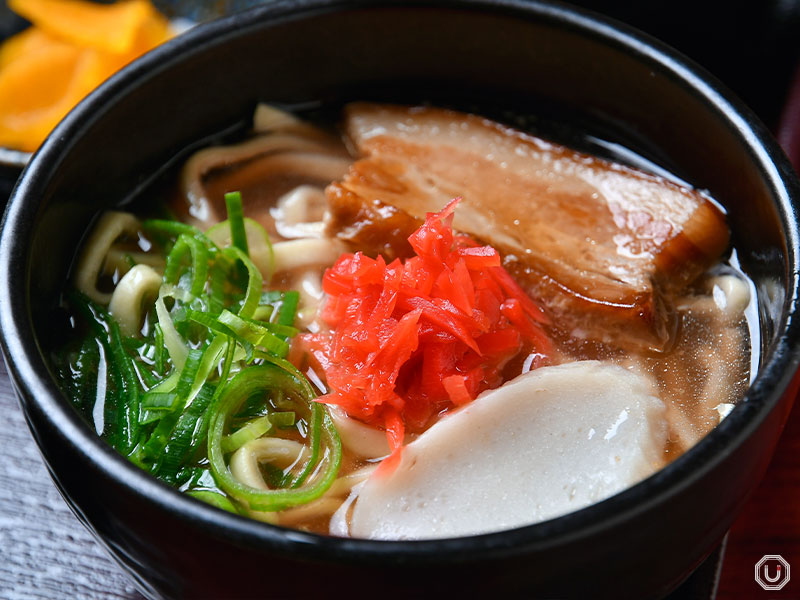
“沖縄そば,” Okinawa Soba
Found all over Okinawa, Okinawa soba features a soup made by simmering pork bones, bonito, and chicken, paired with thick noodles that are different from traditional soba, udon, or ramen—offering a uniquely firm texture.
At Taketomijima the soup is made in-house and served with original noodles, letting you enjoy authentic Okinawan flavor right in Tokyo.
The lunch noodle menu also includes sōki soba (Okianawan soba with pork ribs), which is also highly recommended.
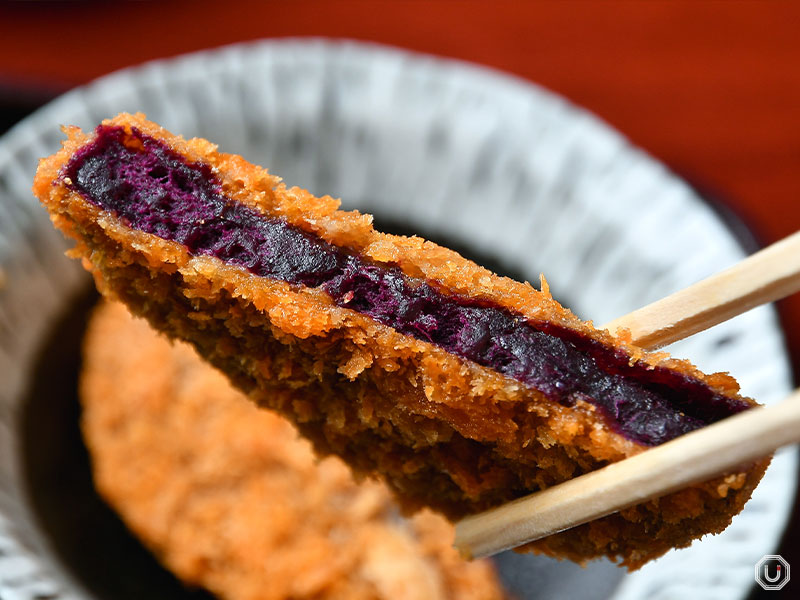
“紅芋コロッケ,” Beni Imo Croquette
Okinawa’s subtropical climate supports the growth of crops different from those on mainland Japan. Among them is beni imo, a purple sweet potato that has long been a staple in Okinawan cuisine.
The restaurant’s croquettes, made with beni imo, have a lovely violet hue inside and a delicate sweetness that spreads across your palate. The purple color of beni imo comes from natural plant pigments called anthocyanins, which have excellent antioxidant properties and are rich in dietary fiber, minerals, and polyphenols.
You’ll also find mozuku seaweed—of which Okinawa is Japan’s top producer—and salads made with firm shima-dofu, all included in the lunch set for a full sampling of Okinawan flavors.
From traditional to original—unique dishes you’ll only find at Taketomijima
Beyond set lunches, Taketomijima also offers many other Okinawan dishes.
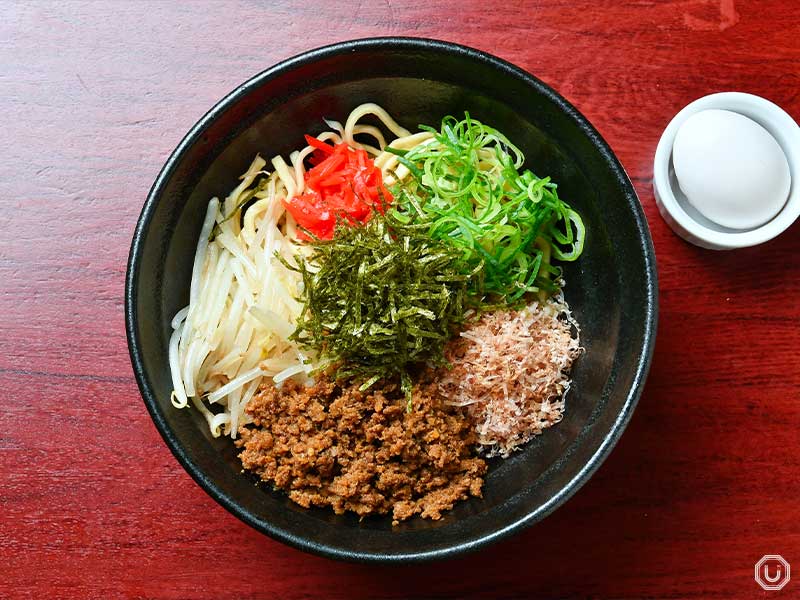
“特製油そば,” Special Abura Soba 1,000 JPY (tax included)
They also serve creative takes on classic Okinawan dishes, and one of the top recommendations is their signature “Special Abura Soba.”
This original version of abura soba (literally “oil noodles,” a soupless type of ramen) is made using Okinawa soba noodles—a unique creation you can only enjoy on Taketomijima.
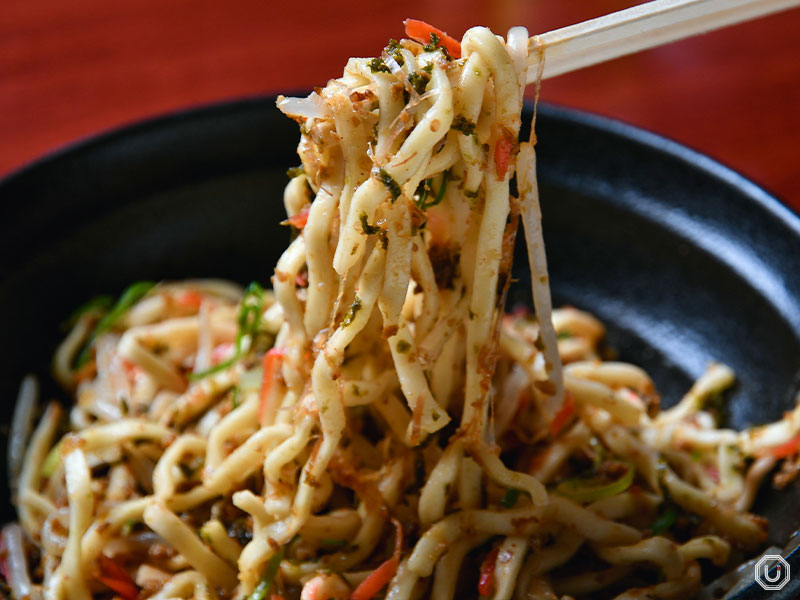
Taketomijima’s Special Abura Soba is topped with house-made Okinawan-style taco meat, and you crack the accompanying soft-boiled egg over it and mix well before digging in.
The bold seasoning pairs perfectly with the hearty noodles, making it so delicious you’ll finish it before you know it.
The Special Abura Soba is quite filling on its own, but it’s also great as a set with rice. Be sure to give it a try!
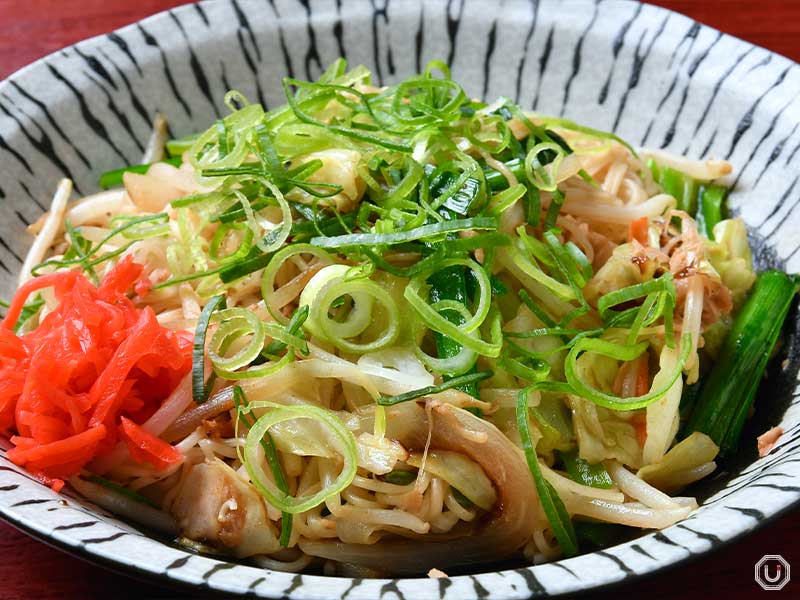
“ソーメンちゃんぷる〜,” Somen Champuru 890 JPY (tax included)
Another traditional Okinawan home-style dish, sōmen champurū is made by stir-frying sōmen (thin Japanese wheat noodles) with vegetables like bean sprouts and cabbage.
On the mainland, somen is typically eaten with dipping sauce, but in Okinawan homes, it’s commonly enjoyed stir-fried.
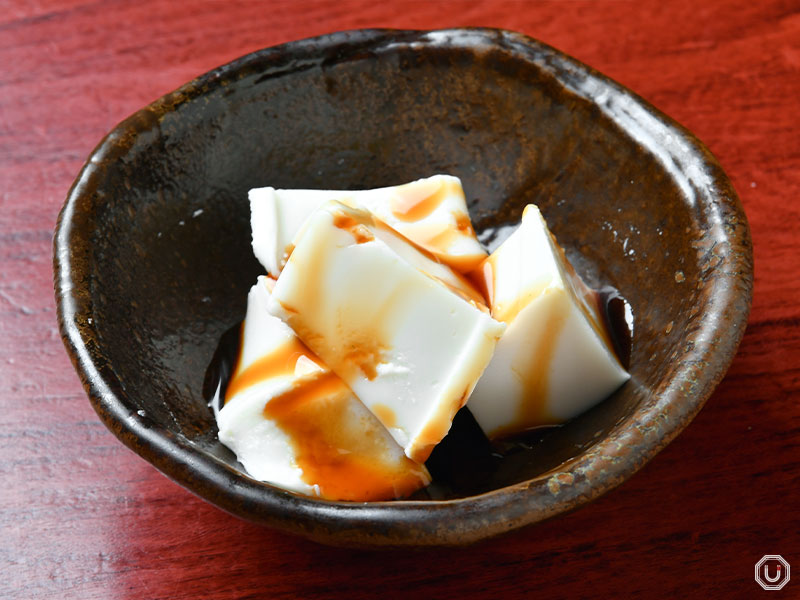
“手作りジーマーミ豆腐,” Handmade Jimami-Dofu 560 JPY (tax included)
“Jīmāmi” is the Okinawan word for peanuts, and jīmāmi-dōfu is a type of tofu made by thickening peanut milk with starch.
Taketomijima’s handmade version has a delightfully rustic flavor, rich in the nutty aroma of peanuts. Its chewy texture pairs beautifully with the slightly sweet soy sauce served on the side.
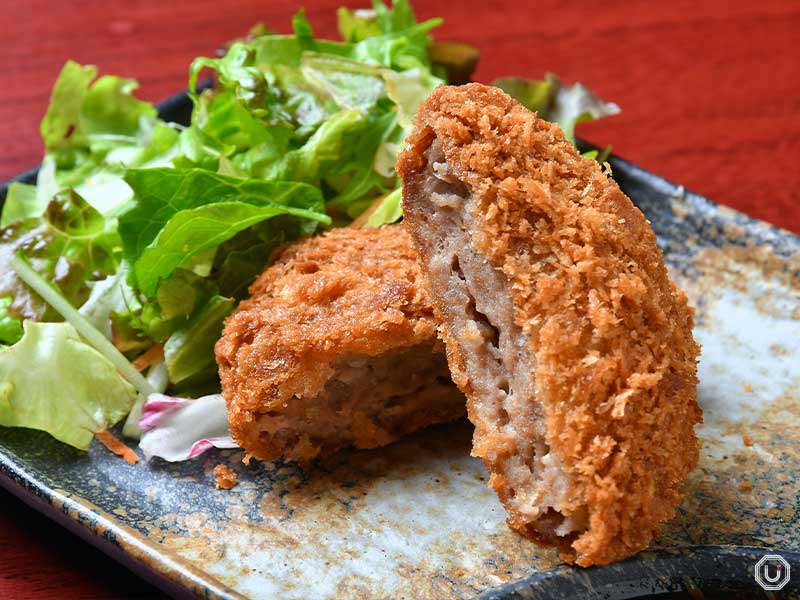
“あぐーメンチカツ,” Agu Pork Menchi Katsu 780 JPY (tax included)
Okinawa is known for its branded pork breeds, especially Agū pork—a crossbreed of native Okinawan pigs prized for their soft, finely textured, and slightly sweet meat.
The “Agu Pork Menchi Katsu” (deep-fried minced pork cutlet) is a juicy, freshly fried dish and one of the restaurant’s most popular items.
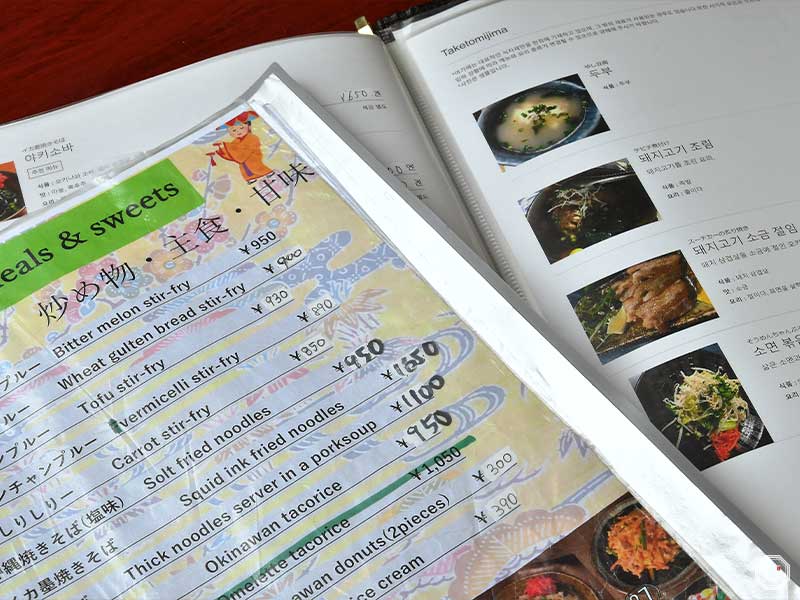
Taketomijima is also popular with tourists from abroad and offers menus in English, Chinese, and Korean.
Many Okinawan dish names are written in local dialects, which can be confusing even with translation apps. But here, all menus come with photos, making it easy to understand what each dish is.
This place is super popular—at night, almost all the seats are taken by people with reservations. If you want to just walk in without a reservation, lunchtime is your best bet.
Don’t miss the chance to experience the delicious world of Okinawan cuisine—and the fascinating cultural differences it offers.
Information
| Store name | 竹富島 Taketomijima |
|---|---|
| Address | Daito-Ginza Building B1F, 6-12-13 Ginza, Chūō-ku, Tokyo
|
| Access |
Ginza Station 5-minute walk from Exit A3
Shimbashi Station 8-minute walk from Exit 3
|
| Phone number | 03-5537-1293 |
| Reservations | Accepted Phone, Official website, Tabelog, Hot Pepper Gourmet |
| Payment |
|
| Service charge / Table charge | 540 JPY (tax included) table charge no course reservations required |
| Hours | Mon-Sat. 11:30-15:00(last order 14:30), 17:00-23:00(last order 22:00) Sun. & nat’l holidays 11:30-15:00(last order 14:30), 17:00-22:00(last order 21:00) |
| Closed | No fixed holidays Unscheduled holidays |
| Seating | 90 table seats |
| Smoking | All seats are non-smoking A smoking room is available |
| Official website | http://www.little-okinawa.co.jp/docs/index.htm |
| Other information |
|
※Menu contents, prices, store information, etc. are current as of June 2025.
